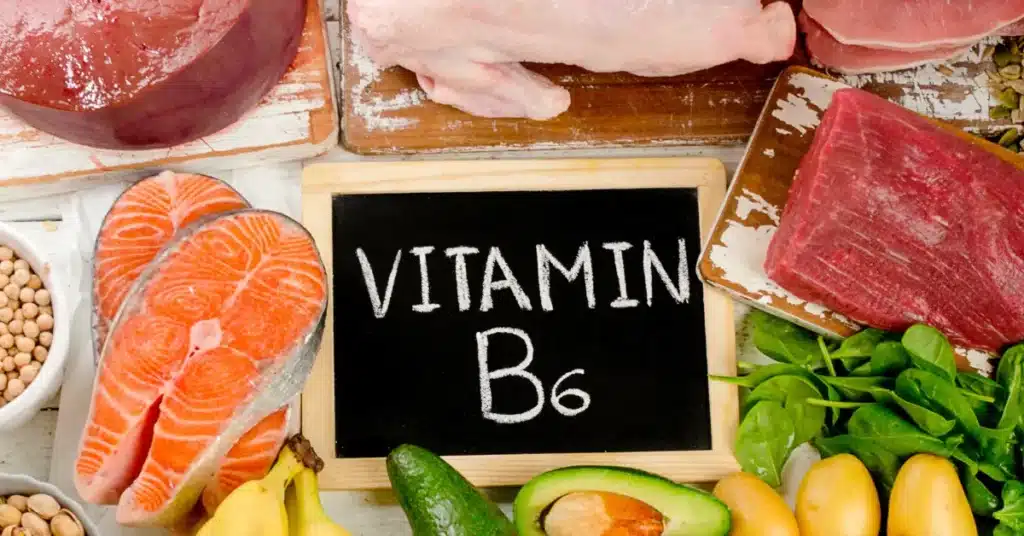PMDD Natural Treatment: Your Key To Lasting Relief
Premenstrual Dysphoric Disorder (PMDD) is a severe type of Premenstrual Syndrome (PMS).
It can cause sadness, irritability, depression, anxiety, anger, and physical discomfort.
While medication is often prescribed to manage PMDD, many people seek natural methods to alleviate their symptoms
By adopting healthy lifestyle habits and managing stress, individuals with PMDD can find relief.
This article will explore several PMDD natural treatment options in detail.
Natural remedies for PMDD
Before trying natural remedies for PMDD, it’s crucial to consult with a doctor or healthcare professional, as their effectiveness lacks strong scientific evidence.
Some of the natural remedies for PMDD include the following:
Dietary changes

Eating a healthy diet can significantly manage PMDD symptoms.
Focus on consuming various nutrient-rich foods, including fruits, vegetables, whole grains, and lean proteins.
Women with PMDD often experience severe irritability.
Omega-3 fatty acids may have mood-stabilizing effects and could help reduce symptoms of depression and irritability in women with PMDD.
Avoiding or minimizing the consumption of high-calorie sugar and salty foods can help minimize psychological and behavioral symptoms associated with PMDD.
Regular exercise
Exercise helps release Endorphins, neurotransmitters in the brain that act as natural mood lifters.
Performing regular physical activity is shown to boost mood and reduce anxiety and depression, which are often exacerbated by PMDD.
Activities like walking, jogging, cycling, swimming, or yoga can be beneficial.
Stress management
Stress can significantly worsen PMDD symptoms, so learning effective stress management techniques is essential.
Practices such as mindfulness meditation, muscle relaxation, and yoga can help alleviate stress levels and promote relaxation.
Supplements

Certain supplements may help alleviate PMDD symptoms.
A study published by The National Library of Medicine suggests that Calcium intake can help reduce symptoms like sadness, depression, and concentration problems related to PMDD.
Magnesium deficiency has been linked to PMDD, and its supplementation may help alleviate the symptoms of PMDD.
Vitamin B6 is involved in Serotonin production, a neurotransmitter that regulates mood.
Supplementing with Vitamin B6 may help alleviate depressive symptoms associated with PMDD.
Herbal remedies
Some herbs have been traditionally used to alleviate PMDD symptoms.
Although more research is needed to confirm their efficacy.
Chasteberry (Vitex)
This herb may help regulate hormone levels by reducing Prolactin levels.
It aids in potentially alleviating symptoms such as irritability, mood swings, and breast tenderness linked to PMDD.
Black cohosh
Black cohosh is believed to ease symptoms associated with PMDD.
It may help regulate hormonal fluctuations and reduce symptoms like irritability and hot flashes.

Are you having PMDD symptoms like hot flashes?
Choosing the best medicine from WowRxPharmacy!
Activelle (1+0.5)mgSt. John’s wort
St. John’s wort is an herbal supplement derived from the flowering plant Hypericum perforatum.
This is usually used to treat depression and may be helpful for PMDD-related mood symptoms.
However, it can interact with certain medications, so it’s essential to consult healthcare providers before using it.
Acupuncture
Acupuncture involves inserting thin needles into specific points of the body. This stimulates energy flow and promotes healing.
It may help alleviate moderate to severe symptoms of PMS, although more research is needed to confirm its safety and effectiveness.
Aromatherapy
This process involves using essential oils extracted from plants to promote relaxation, reduce stress, and alleviate mood symptoms.
Lavender and chamomile are among the essential oils that can be used to relieve symptoms of anxiety, depression, and stress associated with PMDD.
Depending on personal preference, essential oils can be used through inhalation and topical application.
It may take some time to find the right treatments for your PMDD symptoms. What works for one person may not work for another.
Always talk to healthcare providers before starting any new treatment regimen, especially if you’re already taking medication or have other medical conditions.
Warm baths
Taking a warm bath can be soothing and help relax tense muscles, which may alleviate physical discomfort associated with PMDD, such as muscle cramps.
Warm water can also have a calming effect on the mind, promoting relaxation and reducing stress and anxiety.
Ginko
Ginkgo biloba is an herbal supplement derived from the leaves of the Ginkgo tree.
It has properties that improve blood circulation and cognitive function, helping with symptoms such as difficulty concentrating that can occur with PMDD.
However, research on its efficacy specifically for PMDD is limited, and its use should be discussed with a healthcare provider.
Sound sleep

People with PMDD often have disturbed sleep patterns due to the reduction of Melatonin.
Sound sleep refers to a state of deep, uninterrupted sleep.
Prioritizing sleep is essential for overall health, including managing PMDD symptoms.
It can help regulate mood, reduce stress, and improve cognitive function.
Conclusion
Treating PMDD naturally involves addressing various aspects of health, including diet, exercise, stress management, and alternative therapies.
Focus on consuming nutrient-rich foods and minimize the intake of high-calorie, sugary, and salty foods.
Take Calcium, Magnesium, and Vitamin B6 supplements and practice stress-managing techniques like meditation and yoga.
Herbs like chasteberry, black cohosh, and St. John’s wort are also helpful, though more research is needed.
Additionally, Engaging in regular physical activity releases Endorphins. It can aid in boosting mood and reduce anxiety and depression associated with PMDD.
By adopting these strategies, women with PMDD can find relief from symptoms like sadness, irritability, depression, anxiety, and physical discomfort.
It’s essential to consult with doctors before starting any of these solutions as the evidence proving their effectiveness is quite limited.
Frequently Asked Questions
How can I treat PMDD naturally?
You can treat PMDD naturally by adopting a holistic approach. It includes dietary changes, regular exercise, stress management, and supplementation of calcium or Magnesium. Herbal remedies, acupuncture, and aromatherapy may also be used. It’s essential to consult with healthcare providers before using them.
What are the herbal remedies for treating PMDD naturally?
There are several herbal remedies have been used for centuries to alleviate various health conditions, including PMDD. It may include chasteberry, black cohosh, and St. John’s wort. However, medical research on their efficacy for managing PMDD is still ongoing.
Does acupuncture help in treating PMDD?
Yes, acupuncture is helpful in treating PMDD. It alleviates moderate to severe symptoms of PMDD and promotes energy flow and healing. However, more research is needed to confirm its safety and effectiveness.
What are the dietary changes for PMDD?
Dietary changes for PMDD include focusing on consuming nutrient-rich foods like fruits, vegetables, whole grains, and lean proteins. It’s also essential to minimize the intake of high-calorie, sugary, and salty foods to manage symptoms effectively.
WowRx uses only high-quality sources while writing our articles. Please read our content information policy to know more about how we keep our content reliable and trustworthy.






